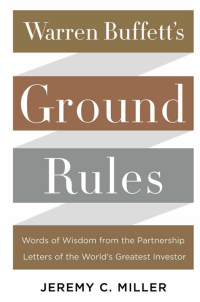Question
1. How should you calculate the total profit made by an investor who bought shares in this company a year ago and sells them today?
1. How should you calculate the total profit made by an investor who bought shares in this company a year ago and sells them today? Select one: a. Profit is the selling price b. It depends on the market capitalization that the company has, it corresponds to the corresponding proportion of the shares it sells c. You must add the dividends paid by the company and the difference between the sale price and the purchase price
2. If the investor wants to evaluate his performance against the market, what should he do? Select one: a. You should compare the gain you made from the change in your share price to the change in a market index, such as the S&P 500 or the Dow Jones, in the same period. If your profit is greater than the observed change in the index, you "beat the market." b. You should compare the profit you made from the price change of your share with the profit you could have made if you had bought the stock that rose the most in the market in that period. That's what "beat the market" means (if yours is the one that went up the most, "beat the market") c. If your result is greater than $ 0, that is, you made a profit, that means you "beat the market"
3. On what factors does the market capitalization of a company depend? Select one: a. Of the number of shares issued by that company and the total income of the company, after taxes, in the last 12 months b. From the original price at which the company's shares and earnings were issued in the last 12 months c. Of the number of shares issued by that company and the current price of the shares d. Of the total income of the company, after taxes, in the last 12 months and the current price of the shares
4. The P / E ratio of a corporation that competes in the same market as your company and has similar characteristics is 18. What does this mean? Select one: a. That the investor who buys shares of that company has an 18% probability of making money, therefore they have LESS probabilities of making money than the investor who buys shares of my company b. That the investor who buys shares in my company is paying MORE for every dollar of profit my company makes than another investor who buys shares in the competitor is paying. c. That the investor who buys shares in my company is paying LESS for every dollar of profit my company makes than another investor who buys shares in the competitor is paying. d. That the investor who buys shares in that company has an 18% probability of making money, therefore he has MORE probabilities of making money than the investor who buys shares in my company
5. If an investor is interested in ETFs (Exchange-Traded Funds) of technology companies, what does he have to do to buy them?
Select one:
a. You can buy them directly, through a portal or broker that works with equity markets, because ETFs are listed on the same markets as stocks.
b. You have to request it from the technology companies in which you are interested in investing, ETFs are shares that companies sell directly, they cannot be bought in the stock markets c. You have to instruct an intermediary to buy shares of technology companies, an ETF is an investment fund individualized for each investor
Step by Step Solution
There are 3 Steps involved in it
Step: 1

Get Instant Access to Expert-Tailored Solutions
See step-by-step solutions with expert insights and AI powered tools for academic success
Step: 2

Step: 3

Ace Your Homework with AI
Get the answers you need in no time with our AI-driven, step-by-step assistance
Get Started


